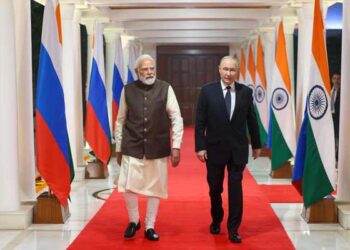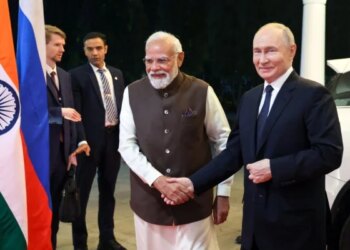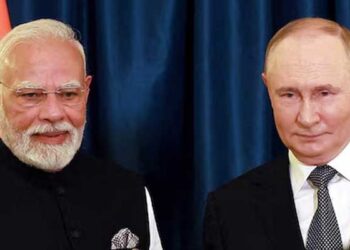Select Language:
Understanding Russia’s Economic Landscape: Growth Projections and Challenges
The economic environment in Russia has seen considerable fluctuations due to geopolitical events and internal policies. The International Monetary Fund (IMF) provides essential insights into these dynamics, particularly in the wake of the country’s actions in Ukraine and the resulting international sanctions. This blog delves into the specifics of Russia’s economic performance and future projections, as well as the underlying factors driving these changes.
The Immediate Impact of Sanctions
A Shrinking GDP in 2022
Following Russia’s invasion of Ukraine in 2022, the country’s economy faced unprecedented challenges. The IMF estimated a contraction in Russia’s Gross Domestic Product (GDP) by 1.2 percent that year, a direct consequence of extensive sanctions imposed by Western nations. These sanctions primarily targeted critical sectors such as energy, finance, and technology, aiming to exert pressure on the Russian economy.
Rebound in 2023 and 2024
Recovery Driven by Government Spending
Despite the harsh sanctions environment, Russia managed to experience a significant economic rebound in the subsequent years. The IMF anticipates GDP growth of 3.6 percent in 2023 and 3.8 percent in 2024. This recovery can largely be attributed to a marked increase in government spending, particularly within the military sector, as the government sought to reinforce its defense capabilities amid ongoing tensions.
Consumer Demand and Labor Market Dynamics
The surge in government expenditure resulted in heightened consumer demand, even as interest rates soared to 18 percent. The tight labor market, characterized by "soaring wages," contributed to a resilient consumer atmosphere, allowing for continued economic activity despite unfavorable financial conditions. Analysts have noted this unusual situation, where heightened government spending coupled with significant wage growth sustained consumer confidence and spending.
Strategic Redirection of Exports
Pivoting to New Markets
Another crucial element influencing Russia’s economic performance has been its strategic redirection of oil and gas exports. Traditionally reliant on Western markets, Russia has increasingly shifted its focus towards countries like India and China. This pivot has helped the nation circumvent some of the negative impacts of sanctions, allowing it to maintain a critical revenue stream despite international isolation.
Future Projections and Challenges Ahead
Slowing Growth Expectations
Looking ahead, forecasts suggest a notable slowdown in Russia’s economic growth. The IMF projects an increase of only 1.4 percent in 2025 and a further decline to 1.2 percent in 2026. These figures indicate a conspicuous shift from the robust recovery experienced in 2023 and 2024.
Key Challenges Influencing Economic Performance
Several factors are expected to contribute to this anticipated slowdown. Notable among these are:
-
Labor Shortages: As the economy continues to evolve in response to sanctions, finding skilled labor could become a significant challenge for various sectors, particularly technology and services.
-
Rising Prices: Inflationary pressures could hamper consumer spending, impacting overall economic activity.
-
Ongoing Sanctions Impact: The long-term effects of sanctions, particularly on the tech sector, will likely continue to create hurdles for growth.
- Trade Restrictions: These restrictions could limit Russia’s ability to diversify its economy and reduce dependence on energy exports over the long term.






